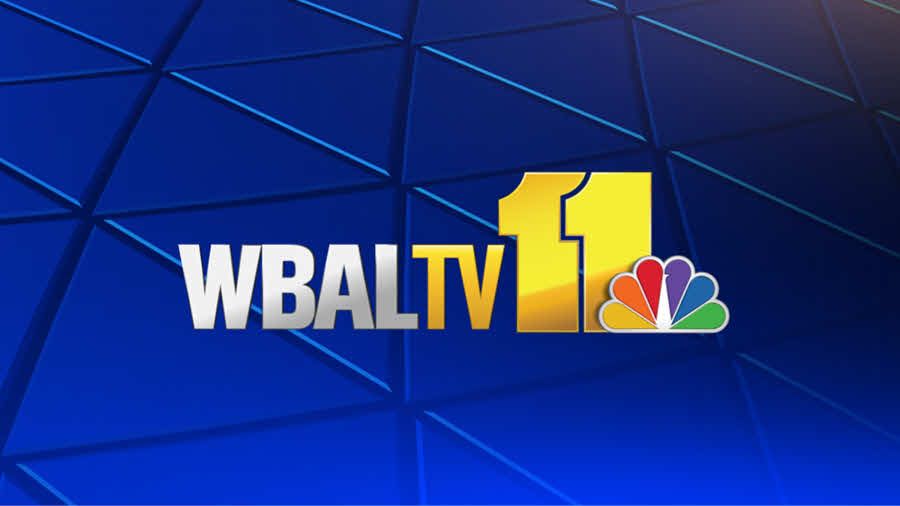The firing of a WBAL reporter has sparked widespread debate and curiosity among media enthusiasts and the general public alike. As news outlets continue to evolve in response to changing demands, the decision to terminate a reporter often raises questions about journalistic integrity, internal policies, and the broader implications for media freedom. In this article, we delve deep into the reasons behind the WBAL reporter's firing, examining the circumstances that led to the decision and its potential ramifications on the journalism industry.
Journalism plays a pivotal role in shaping public discourse and holding institutions accountable. When a prominent reporter is fired, it inevitably draws attention and raises concerns about the state of press freedom and journalistic ethics. Understanding the reasons behind such decisions is crucial for both media professionals and the public, as it sheds light on the dynamics of modern journalism.
This article aims to provide a thorough examination of the situation surrounding the WBAL reporter fired, exploring the key factors that contributed to the decision. By analyzing the context, policies, and industry trends, we hope to offer valuable insights into this significant event in the media landscape.
Read also:Ashley Leggat Relationships Unveiling The Personal Life Of A Rising Star
Table of Contents
- Background on WBAL and Its Reputation
- Biography of the WBAL Reporter
- Reasons Behind the Firing
- Ethical Considerations in Journalism
- Impact on Media and Journalism
- Current Trends in the Journalism Industry
- Public Reaction and Opinions
- Legal Implications of the Decision
- Future Outlook for Journalism
- Conclusion and Call to Action
Background on WBAL and Its Reputation
WBAL, one of the most respected media outlets in the United States, has a long history of delivering quality news to its audience. Established in 1920, the station has been at the forefront of journalism, providing accurate and timely information to millions of viewers and listeners. Over the years, WBAL has built a reputation for integrity, impartiality, and dedication to the truth.
However, like many media organizations, WBAL faces challenges in adapting to the digital age. The rise of social media and the proliferation of online news sources have forced traditional media outlets to reevaluate their strategies and practices. In this context, decisions such as firing a reporter can be seen as part of a larger effort to align with contemporary demands and expectations.
WBAL's Role in Shaping Public Opinion
As a major player in the media landscape, WBAL plays a crucial role in shaping public opinion and informing the community. Its influence extends beyond local news, reaching national and even international audiences. The station's commitment to journalistic excellence has earned it numerous awards and accolades, cementing its status as a trusted source of information.
Biography of the WBAL Reporter
The WBAL reporter fired, whose name remains a subject of discussion, has been a prominent figure in the journalism world. With years of experience covering a wide range of topics, the reporter established a reputation for in-depth reporting and insightful commentary.
Reporter's Biodata
| Name | [Reporter's Name] |
|---|---|
| Age | [Reporter's Age] |
| Experience | [Years of Experience] |
| Specialization | [Field of Expertise] |
Reasons Behind the Firing
The decision to fire the WBAL reporter was influenced by several factors, including internal policies, external pressures, and the evolving nature of journalism. Understanding these reasons requires a closer look at the specific circumstances surrounding the case.
Key Factors Leading to the Decision
- Violation of journalistic ethics
- Conflict with editorial policies
- Shifts in media priorities
Each of these factors played a significant role in the decision-making process, highlighting the complexities involved in managing a media organization in today's fast-paced environment.
Read also:Jodi Lyn Okeefe Partner A Comprehensive Exploration
Ethical Considerations in Journalism
Journalistic ethics form the foundation of credible reporting. The principles of accuracy, fairness, and accountability guide reporters in their pursuit of truth. However, ethical dilemmas often arise in the field, forcing journalists to make difficult decisions that can impact their careers.
In the case of the WBAL reporter fired, questions about ethical violations have been raised. Critics argue that the reporter may have crossed professional boundaries, while supporters maintain that the decision was unjustified. This debate underscores the importance of maintaining ethical standards in journalism.
Common Ethical Challenges in Journalism
- Conflicts of interest
- Plagiarism
- Misrepresentation of facts
Impact on Media and Journalism
The firing of the WBAL reporter has significant implications for the media industry as a whole. It raises important questions about the role of journalists in society and the challenges they face in maintaining independence and integrity.
Moreover, the incident highlights the growing tension between traditional media outlets and new digital platforms. As media consumption patterns continue to shift, organizations must adapt to remain relevant and effective in delivering news to their audiences.
Current Trends in the Journalism Industry
The journalism industry is undergoing rapid transformation, driven by technological advancements and changing audience preferences. Key trends include the rise of digital news platforms, increased reliance on social media for news dissemination, and the growing importance of multimedia storytelling.
These trends pose both opportunities and challenges for journalists and media organizations. While digital platforms offer new ways to engage with audiences, they also introduce complexities such as misinformation and declining trust in traditional media.
Public Reaction and Opinions
The public reaction to the WBAL reporter fired has been mixed, with opinions divided along various lines. Some view the decision as a necessary measure to uphold journalistic standards, while others see it as an overreach by management.
Social media platforms have played a crucial role in amplifying public discourse on the issue, with users sharing their thoughts and engaging in discussions about the implications of the firing. This highlights the power of digital platforms in shaping public opinion and influencing media narratives.
Legal Implications of the Decision
The firing of the WBAL reporter may also have legal implications, depending on the circumstances surrounding the decision. Employment laws and contracts often dictate the conditions under which employees can be terminated, and violations of these rules can lead to legal challenges.
Media organizations must ensure that their decisions are grounded in sound legal principles and align with industry standards. This requires a thorough understanding of labor laws and a commitment to transparency and fairness in all employment-related matters.
Future Outlook for Journalism
As the journalism industry continues to evolve, the future looks both promising and challenging. The rise of new technologies and platforms offers exciting opportunities for innovation and growth, but it also demands adaptability and resilience from journalists and media organizations alike.
To thrive in this dynamic environment, journalists must embrace change while remaining committed to the core principles of their profession. By fostering collaboration, embracing diversity, and prioritizing ethical standards, the journalism industry can continue to serve as a vital pillar of democracy and informed citizenship.
Conclusion and Call to Action
In conclusion, the firing of the WBAL reporter represents a significant moment in the ongoing evolution of journalism. It highlights the complexities and challenges faced by media organizations in maintaining journalistic integrity while adapting to changing circumstances. By examining the reasons behind the decision and its broader implications, we gain valuable insights into the state of modern journalism.
We invite readers to share their thoughts and opinions on this issue by leaving comments below. Your feedback is crucial in fostering a deeper understanding of the challenges and opportunities facing the journalism industry today. Additionally, we encourage you to explore other articles on our site for more in-depth analyses of current events and trends in the media landscape.


